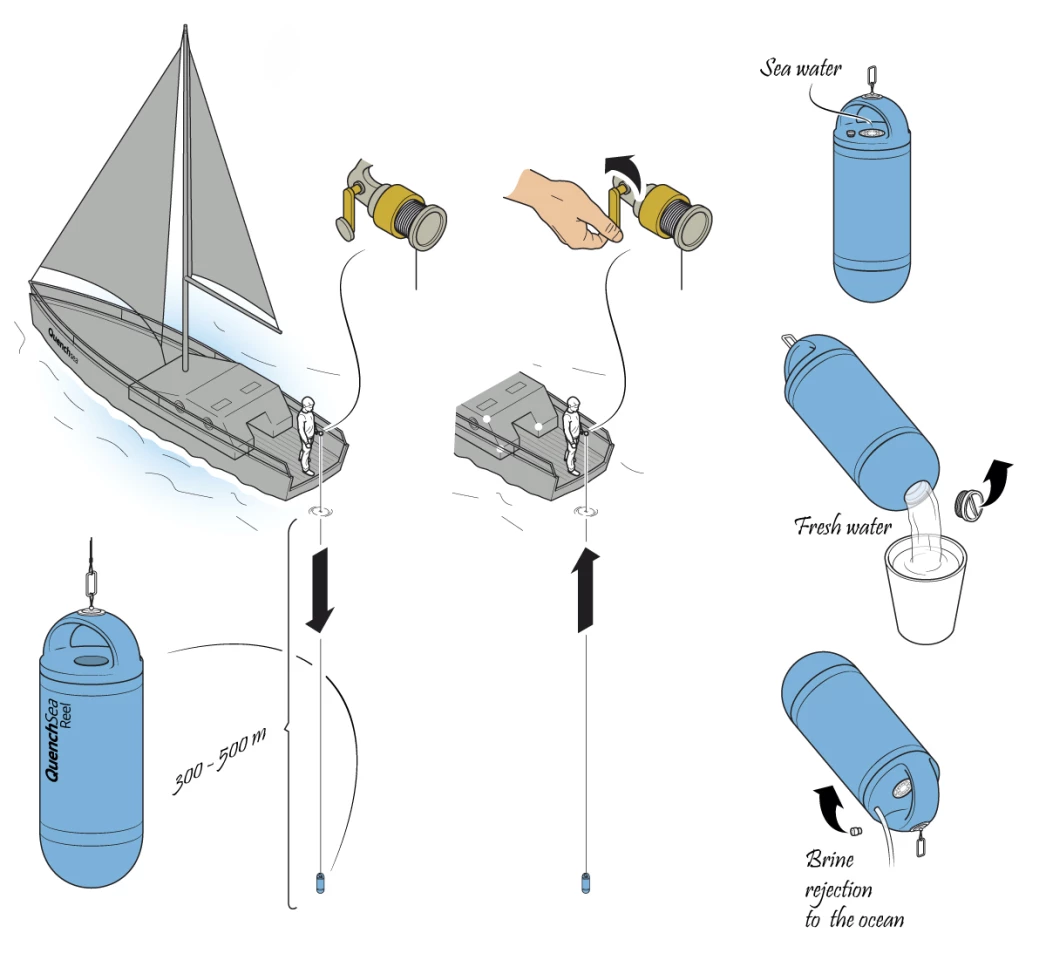Back in 2020 we told you about the QuenchSea, a foot-pump-powered portable device for desalinating sea water. Well, its makers are back with the QuenchSea Reel, which uses deep-ocean water pressure to do the same job.
The Reel is a 4-kg (9-lb) capsule-shaped boating gadget that measures 15 by 45 cm (5.9 by 17.7 in), and which is attached to an included 550-m (1,804-ft) reel of fishing line. Although it could be utilized on a regular basis, it's intended more as an emergency-use tool to keep on hand along with a life raft, etc.
When users need potable water, they just lower the device to a depth of 300 to 500 meters (984 to 1,640 ft). The water pressure at that depth forces seawater through a semipermeable replaceable membrane in its filter, which captures salts, bacteria and microplastic particles while allowing fresh water to flow through into a collection compartment.

According to the QuenchSea company, this setup produces 1.5 liters (0.4 US gal) of drinkable water every five minutes. The device is simply reeled back up to the surface to access that water, which is reportedly up to 98% salt-free and has a TDS (total dissolved solids) rating of less than 1,000 parts per million – anything over 1,000 is deemed unsafe.
The QuenchSea Reel is available now for preorder, at a special launch price of US$150 plus a flat rate of $30 for shipping. Deliveries are expected to take place sometime before December. Packs of two replacement filters will sell for $60.
Source: QuenchSea





